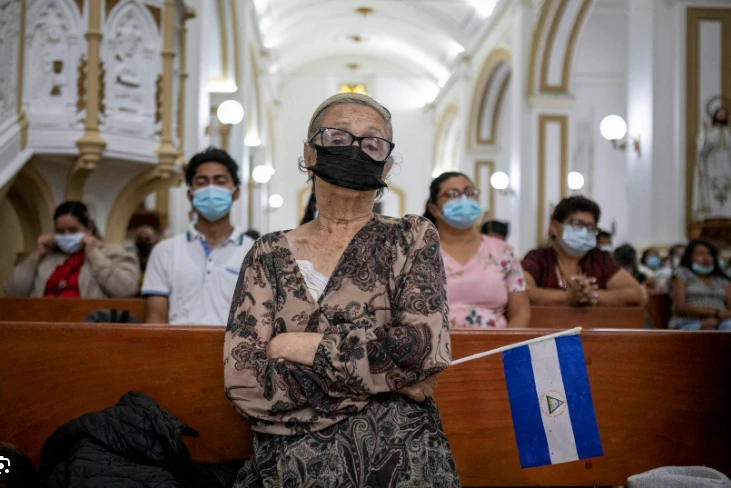Nicaragua orders churches to pay taxes in ongoing crackdown

Stay tuned with 24 News HD Android App

Nicaragua ordered churches and religious entities to pay income tax and forced the closure of more than 150 non-governmental organizations, according to an official statement Thursday, in a further crackdown on opponents of President Daniel Ortega.
The resolution to "repeal" the law exempting such organizations from tax was published in the official La Gaceta newspaper, and signed by Ortega.
Now they will have to pay taxes of up to 30 percent of their annual income.
The government also shuttered 151 non-governmental organizations.
The move came three days after Managua closed some 1,500 NGOs, in what the opposition in exile described as an attack against civil society.
The government has jailed hundreds of critics, real and perceived, since protests against Ortega's regime in 2018 that were met with a crackdown the United Nations said left more than 300 people dead.
Monday's announcement was the single-largest targeting of NGOs to date. In total, more than 5,200 civil organizations have been dissolved since 2018.
The United States condemned the "unjust" closures Thursday, according to a tweet by the State Department's assistant secretary for Western Hemisphere affairs, Brian Nichols.
The crackdown "marks a dark new chapter in the systematic repression that has characterized Daniel Ortega's regime," said former Nicaraguan presidential candidate Felix Maradiaga, in exile in the United States, in a post on X.
The Inter-American Commission on Human Rights (IACHR) also condemned the move.
"This action intensifies the repression in Nicaragua, demonstrating the relentless onslaught against pluralism and the deliberate closure of civic and democratic space in the country," the IACHR said in a statement.
The United Nations termed the development "deeply alarming."
Ortega became the leader of Nicaragua first as a junta head in 1979, after fighting as a guerrilla in the Sandinista movement that toppled the US-backed Somoza family dictatorship. He was later elected as the country's president in 1985.
Beaten in elections in 1990, he returned to power in 2007 and has since quashed presidential term limits and seized control of all branches of the state.
His regime is under US and European Union sanctions.
